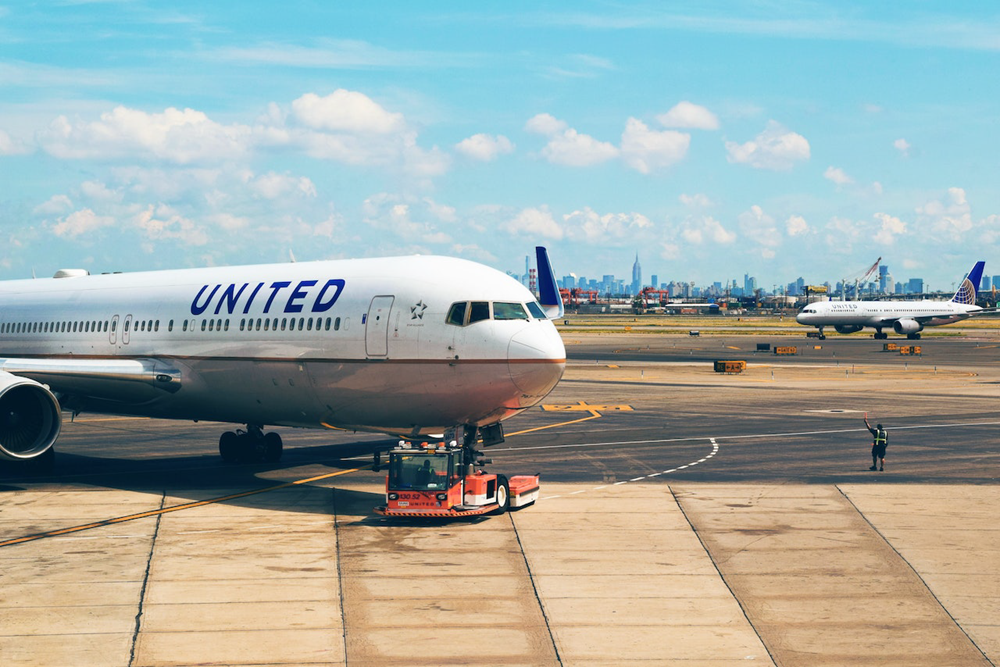
As most caregivers will know, traveling with a senior tends to involve additional planning and considerations.
Often, there will be extra challenges that you have to pay attention to, such as ease of movement, incontinence issues, and what happens in the case of an emergency.
But, don’t let these challenges put you off.
Even with extra issues and considerations, traveling with seniors can be a truly rewarding experience and offers the chance to form unique memories. At the same time, there is nothing to say that a senior should remain at home, simply because traveling has become more complicated.
So then, let’s take a look at what you can do to make flying with seniors as stress-free as possible.
Plan Well and Effectively
Effective planning may seem like fairly general advice – especially as you need to plan your travel regardless. However, planning takes on new significance when traveling with seniors.
For one thing, having a detailed plan makes it easy to see where potential issues can arise. At the same time, the better your plans, the lower the risk of things going wrong. Many seniors also find plans useful as they create a sense of structure. In turn, this can mean less stress – especially in a busy airport.
Planning well also lets you make sure that you work around any potential issues and make the entire process as easy as possible.
All of the following approaches fall under the general category of planning. However, they are all specific areas that are worth taking into consideration.
Book Non-Stop (if possible)
Non-stop flights mean more time on the plane and less time in airports dealing with crowds and navigation. This can be an advantage and a disadvantage, depending on your situation.
However, having a non-stop flight does mean fewer connections to worry about and less risk about missing a connecting flight.
As a result, the process involves much less stress, especially as each new flight would come with its own challenges.
Beyond this, a non-stop flight means fewer changes. So, there is no need to re-settle each time or to familiarize cabin staff with the senior’s specific needs (if there are any).
If non-stop isn’t an option, aim for as few flights as possible.
Doing so may cost more but the reduced amount of stress alone makes the decision worth it.
Avoid Small Companies (and airports)
Small airline companies may sometimes offer better fares or have more attractive timing – but larger airlines are normally better when traveling with seniors.
One reason is that many smaller companies have fewer accommodations and it may be harder for seniors to access the plane. In many cases, this could mean the senior has to climb a flight of stairs, which may be difficult.
A similar pattern exists for airports.
In particular, smaller airports often have no airbridges or will have fewer of them. Likewise, they may have less expertise in dealing with special needs and requests.
You won’t always have control over which companies and airports you end up with. However, in most cases, you can avoid smaller and more obscure ones with enough planning early on.
Choose the Time of Day Well
Seniors often struggle with energy, particularly in the morning and at night. Because of this, it’s normally best to plan your travel around this – as much as possible. For example, mid-morning and afternoon departures are typically much better than having to leave home at 5 am.
If you have a longer journey, planning around the time of day may not be as viable. Still, simply getting the timing of that initial flight right can make a large difference.
Start Planning Early
A key aspect of getting the outcomes you want is to start planning early enough. Not only will this help you get cheaper tickets overall but it will also mean you have the most options when it comes to companies, routes, and airports.
Doing so is particularly important if you’re traveling a significant distance, as there are often multiple different options available.
Planning has become even more important since COVID-19, as there are often extra requirements for traveling and everything takes longer. Requirements vary from country to country and airline to airline, so it’s important to research carefully before you travel.
Choose Disability Options (and the right ones)

Airlines provide various disability options and selecting these is critical for flying with seniors. For example, these options include whether the person is able to walk, whether they need wheelchair assistance and/or stowage, and whether they need other types of assistance.
With some companies, you can make these selections during the booking process. However, that’s not always the case.
Instead, some companies require you to contact the company by phone.
Regardless of how you select the options, it’s always worth checking that the requests have been correctly associated with your ticket. Unfortunately, airlines do sometimes make errors in this area and you don’t want to get to the airport and find that there is no assistance.
If possible, it’s best to choose assistance to and from the gate only, rather than assistance with boarding as well.
This aspect depends on the person, of course.
However, if you do want assistance with getting on and off the plane, then the process can be time-consuming, especially as you typically have to wait until everybody else gets off the plane.
You can also request a wheelchair at the airport itself. In most cases, there will be some available, even if you didn’t request one when booking the flight.
Nevertheless, if the senior needs a wheelchair – make sure you plan this in advance and check with the airport about availability. As with everything else, the more planning you do, the more likely you are to have a smoother experience.
Also, check the websites for the airlines that you are flying with and the airports that you will be visiting. Often these will have additional information about support and what you can do. In many cases, there will also be specific sections for seniors and for things to be aware of.
Look for Senior Discounts
In some cases, airlines will offer discounts for seniors. Getting this type of discount can help reduce your costs, without having any significant disadvantages.
Nevertheless, this shouldn’t be the most important aspect of your planning.
Realistically, many companies claim to offer this type of discount but only a fraction actually have significant discounts. In most other cases, you’ll find that the price is the same for seniors and adults, even for companies that promote this type of deal.
So, a discount is great if you can get it but it isn’t something that you should count on.
Getting a discount also mightn’t be worth it if you have to choose options that make the process more difficult – such as smaller airports or more obscure airlines.
Don’t Have Seniors Travel Alone
Unless absolutely necessary, try not to have the senior travel on their own entirely.
Regardless of how well you arrange things, there is always the potential for problems to arise. At the same time, many seniors get confused easily and may struggle to resolve any problems that do occur.
Realistically, airlines simply aren’t great at keeping their promises and this can create some pretty major challenges.
Traveling with another family member helps to get around these problems. At the same time, this helps to create a more enjoyable and less stressful experience overall.
Choose the Right Security Line
Any passenger in a wheelchair (and those traveling with them) will often receive priority TSA screening.
Additionally, there is expedited screening for passengers over 75 years of age. This includes the ability for the senior to leave on their shoes and a light jacket. Likewise, it is possible to request to remain seated during this part of the process.
There are also special processes in place for various disabilities and medical conditions, which you can read about on the TSA website.
It is also worth getting in touch with the airport(s) beforehand to find out what steps you can take to make the process go smoother. Often the staff may have additional advice, such as where the security line you want will be located.
Have Documentation Prepared (multiple copies)

Documentation is an absolute must when traveling. This is true domestically but is particularly relevant if you are traveling internationally.
With documentation, it’s worth double and triple checking that you have everything you may possibly need. For a senior, this may include copies of prescriptions and any official statements that relate to medical conditions.
Likewise, you will need a passport and to make sure you have any visa paperwork organized before you go overseas.
It’s also important to have multiple copies of documentation. You only need one copy but losing your documentation is one of the worst things that can happen.
One piece of advice is to have a copy with your parent’s hand luggage, one with their stowed luggage, one with a family member who is traveling alongside the senior, one at home and one at the destination (if feasible).
That can sound like a lot – but it helps avoid any issues with documentation, especially as the consequences of not having it can be extremely stressful.
Plan for Security and Comfort
One final piece of advice is to make your plans based on security and comfort. For example, thieves are commonplace in airports, so you don’t want to risk a parent’s handbag being stolen. Having a money belt is often a better idea.
If your family member still wants a purse or something similar, it’s worth having the most critical documents and cards in a wallet around the neck or a money belt. That way, even if something is stolen, you can manage without it.
Another way to promote comfort is to pack light. More luggage means increased hassle at the airport, which can be stressful.
Items like neck pillows and similar products can also be useful, particularly on long-haul flights. However, be aware that these are one more thing that has to be carried.
Final Thoughts
Without a doubt, there are more considerations involved in traveling with a senior than on your own. However, most of these approaches are relevant regardless of who you are traveling with.
Also, taking the time to plan and research will always reduce the hassle and stress of traveling. Plus, if you start to plan early enough, the process doesn’t have to be difficult at all.
Plus, all of these steps do make traveling safer overall and reduce the risk of any issues occurring. That alone makes them worth the time and helps make sure you have a positive experience, regardless of the situation.
Feeling Overwhelmed?
Check out our Caregiving Consulting service for personalized support and guidance.

Thanks for very detailed and useful advise. Would you advise, for senior mother with some English fluency travelling with son (English fluent) on long flights to Canada stopping by USA, what about onboard medical capability? medical knowledge of flight staff? accessibility such as toilet seat handles? seat ergonomics? alternate travel arrangement? best way to make purchase? hard copy instead of electronic information?
When health issues with long sitting is more problematic than crowds and navigation, is more stops better? which USA non-stops have less problems with stops (less crowds, easier navigation and less risk of airplane failure from ascending/descending? Thanks ahead!